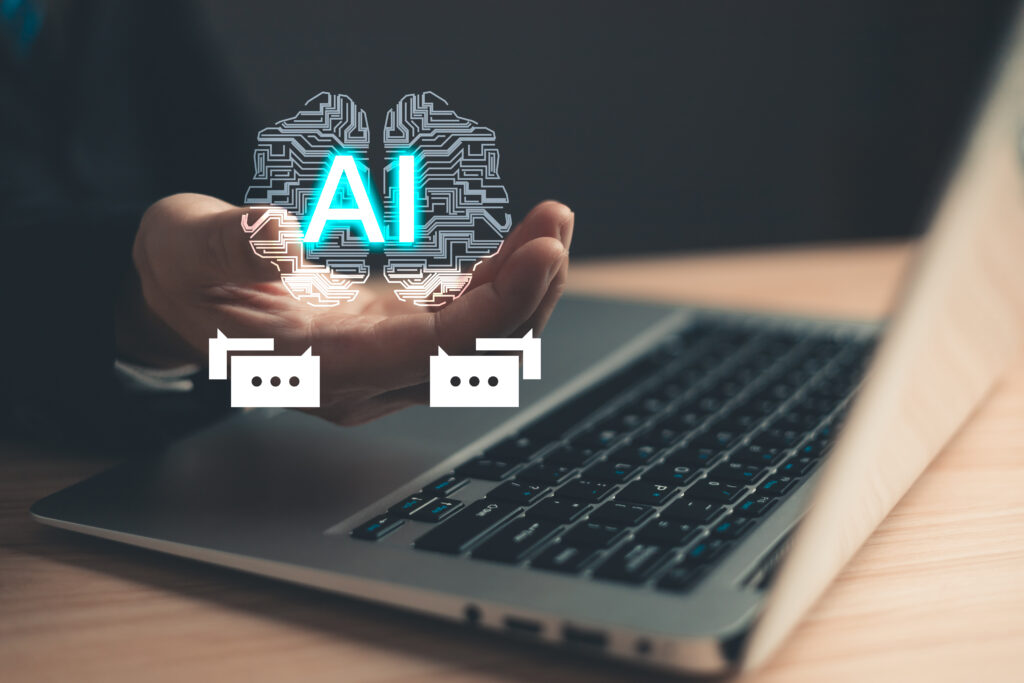In an era where natural disasters pose increasingly significant threats, the integration of AI is transforming disaster management into a more efficient and effective process. By harnessing intelligent solutions, organizations can predict, respond to, and recover from emergencies with unprecedented speed and accuracy.
This blog post explores the innovative applications of AI in disaster management, highlighting how technology is reshaping our approach to crisis response and resilience.

The Role of AI in Disaster Management
Through various applications, AI in disaster management has established itself in crisis management. AI tools are employed in:
- Predicting Disasters
AI systems have the amazing capacity to identify intricate patterns and more accurately forecast the probability of future crises by carefully examining enormous volumes of historical data in addition to real-time sensor feeds.
Natural catastrophes like earthquakes and public health crises like disease outbreaks fall under this category. These AI systems’ capacity for prediction enables prompt interventions and the adoption of preventative measures, which could reduce the impact of these occurrences and save countless lives.
- Preventing Disasters
Designing and putting into practice preventative measures like flood barriers and early warning systems heavily relies on artificial intelligence. These AI-powered solutions are essential for predicting future calamities and facilitating prompt responses that might greatly lessen their effects.
AI in disaster management can forecast the potential timing and location of natural disasters, such as floods, by analyzing enormous volumes of data. This enables the implementation of efficient mitigation techniques to protect assets and communities.
- Responding to Disasters
AI in disaster management is essential for the coordination of emergency services, effective resource management, and logistics optimization for efficient distribution during a crisis. This guarantees prompt and efficient replies, greatly improving the capacity to deal with the issue and lessening the impact on impacted locations. AI’s ability to quickly analyze enormous volumes of data aids decision-making and supports a well-planned disaster response.
5 Benefits of AI In Disaster Management
There are various benefits of incorporating AI into disaster management that improve the overall response capabilities:
- Early Warning Signs
AI-based algorithms can identify minor indicators of approaching crises that human analysts might overlook, giving decision-makers crucial advance notice.
- Weather Forecasting
Advanced AI models can significantly increase the precision of weather forecasts, assisting in the anticipation and preparation of events such as heat waves and hurricanes.
- Disaster Reaction & Recovery Efforts
By rapidly determining the most urgent requirements and the most effective means of meeting them, AI simplifies the coordination of reaction teams and the distribution of supplies.
- Post-Disaster Recovery and Rebuilding
AI can help create recovery plans that are both effective and fair by evaluating data on damage and resource availability.
- Basic Medical and Psychological Consultations
In the wake of a crisis, chatbots with AI help and robotic process automation can offer prompt, 24-hour assistance for basic medical and psychological requirements.
5 Challenges of AI In Disaster Management
- Ethical Considerations
The integration of AI in disaster management raises significant ethical questions, particularly concerning privacy. As AI systems often rely on large datasets that may contain sensitive information, ensuring the protection of individual rights becomes crucial.
Additionally, the transparency of decision-making processes is vital to fostering trust among affected communities and stakeholders.
- Technical Limitations
Despite the advancements in AI technology, there are still inherent technical limitations that can hinder its effectiveness in crises. These may include challenges such as data quality, algorithm biases, and the ability to operate in unpredictable environments. Ensuring that AI systems are reliable and accurate is essential for their successful application in high-stakes disaster scenarios.
- Need for Human Oversight
While AI can provide valuable insights and support, it can’t replace the nuanced judgment and empathy that human responders bring to disaster management. Human oversight is essential to interpret AI-generated data in context, ensuring that decisions reflect the complexities of human needs and ethical considerations.
- Devaluation of Traditional Methods
The increasing reliance on AI technologies may lead to the overshadowing of traditional disaster response methods that emphasize community engagement and human connections. These conventional approaches have proven effective in building resilience and ensuring the well-being of affected populations. Striking a balance between leveraging AI capabilities and preserving the importance of human-centric methods is essential for comprehensive disaster management.
- Collaborative Approach Requirement
Addressing the challenges associated with AI in disaster management necessitates a collaborative effort across multiple disciplines and sectors. Engaging experts in technology, emergency management, ethics, and policy will foster a holistic understanding of AI’s potential and limitations. This collaboration is vital to ensure that technologies evolve responsibly, maximizing their benefits for the public good while addressing ethical and operational challenges.
Conclusion
While the integration of AI in disaster management offers remarkable potential for enhancing crisis response and recovery, it also necessitates careful consideration of ethical implications and the importance of human oversight. By fostering collaboration across disciplines and maintaining a balance between technological innovation and traditional methods, we can harness the full power of AI to create a more resilient and effective disaster management framework.
Discover the potential of AI for your organization – reach out to us today to learn how our solutions can drive efficiency and innovation in your business!
- AI in IoT: Benefits, Components, and Impact - April 10, 2025
- AI and Low-Code/No-Code: A New Era of Development and Innovation - February 25, 2025
- The Ultimate Guide to AI in IT Support: The Tools, Benefits & Challenges You Must Know - February 11, 2025
